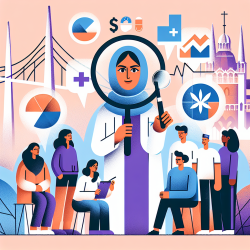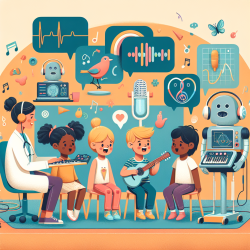The integration of artificial intelligence (AI) into clinical and genomic diagnostics is not just a futuristic concept but a present-day reality that is reshaping the landscape of healthcare. As AI technologies advance, they offer unprecedented opportunities for practitioners to enhance their diagnostic capabilities and deliver more personalized care. This blog explores key insights from recent research on AI's role in clinical and genomic diagnostics and how practitioners can leverage these advancements to improve their skills.
The Role of AI in Clinical Diagnostics
AI systems are designed to mimic human intelligence by interpreting complex health data. These systems excel in tasks that involve large datasets, such as image-based diagnostics, where AI-based computer vision approaches have shown significant promise. For instance, AI algorithms can analyze radiological images with precision, aiding in the early detection of diseases like cancer.
Moreover, AI's ability to process time-series data has improved the analysis of continuous health monitoring devices like electrocardiograms. This capability allows for accurate detection of conditions such as arrhythmias, offering practitioners a powerful tool for real-time patient monitoring.
Advancements in Genomic Diagnostics
In the realm of genomics, AI has revolutionized the processing of large and complex datasets. Deep learning algorithms are particularly effective in tasks such as variant calling, genome annotation, and phenotype-to-genotype mapping. These advancements enable practitioners to identify genetic variants with greater accuracy, facilitating more precise diagnoses.
AI's role extends to predicting the impact of genetic variations on health outcomes. By analyzing genomic data alongside phenotypic information, AI systems can provide insights into disease risk prediction and individualized treatment plans.
Implementing AI in Practice
For practitioners looking to integrate AI into their diagnostic processes, understanding the various applications of AI is crucial. Here are some steps to consider:
- Stay Informed: Regularly attend conferences and webinars focused on medical AI advancements to stay updated on the latest technologies.
- Collaborate with Experts: Engage with data scientists and bioinformaticians to understand how AI can be tailored to your specific diagnostic needs.
- Invest in Training: Equip yourself and your team with the necessary skills to operate AI tools effectively through specialized training programs.
- Evaluate Tools: Assess different AI platforms for their accuracy, ease of use, and integration capabilities with existing systems.
The Future Potential of AI in Medicine
The potential for AI in individualized medicine is vast. As these technologies continue to evolve, they promise to enhance risk prediction models for complex diseases by integrating genetic data with other health indicators. However, challenges such as algorithm biases and data privacy concerns must be addressed to ensure ethical deployment.
The future of healthcare lies in harnessing the full potential of AI while maintaining transparency and trust between patients and healthcare providers. Practitioners who embrace these technologies will be at the forefront of delivering cutting-edge care.
Conclusion
The integration of AI into clinical and genomic diagnostics offers a transformative opportunity for practitioners to enhance their skills and improve patient outcomes. By staying informed about technological advancements and actively engaging with these tools, healthcare professionals can lead the way in personalized medicine.
To read the original research paper on this topic, please follow this link: Artificial intelligence in clinical and genomic diagnostics.










